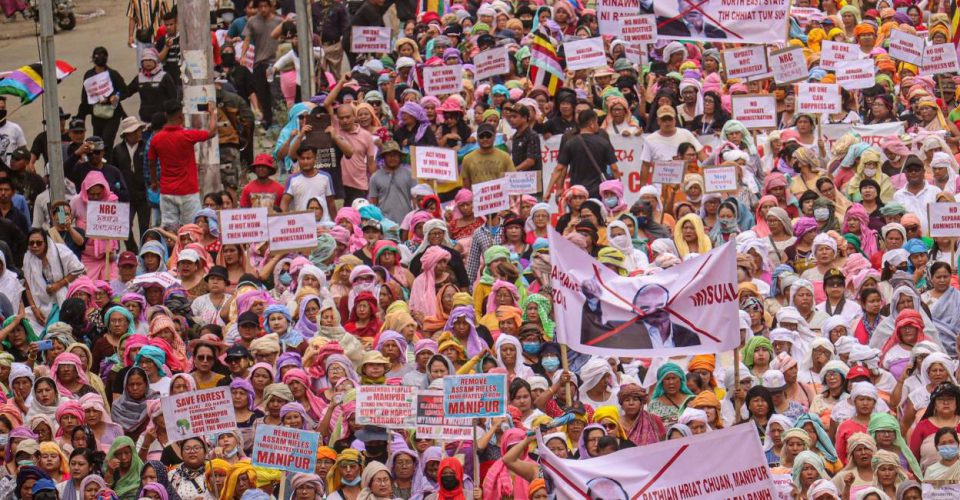The inclusion of the Meitei community in Manipur’s Scheduled Tribe (ST) list, the Manipur High Court has modified its earlier order following a review petition filed by the Metei Tribes Union (MTU). The court’s decision comes in the wake of a directive from the Supreme Court, emphasizing adherence to constitutional provisions and established legal procedures.
Previously, a paragraph in the High Court’s order, dated March 27, 2023, which directed the state government to consider recommending the inclusion of the Meitei community in the state’s ST list, was contested. The review petition sought a modification of this paragraph, citing concerns over its compliance with established legal precedents, including a Supreme Court ruling on State of Maharashtra V. Milind & Ors.
The Supreme Court’s stance, reiterated during hearings last June, emphasized that the power to recommend reservation for specific communities lies with the President of India and Parliament, not with state governments or the judiciary. This clarification prompted the petitioners to approach the Manipur High Court seeking a modification of the contentious paragraph.
The procedure for inclusion or exclusion from the ST list, as outlined by the Ministry of Tribal Affairs, involves a multi-step process, starting from representations made to the ministry and culminating in Parliament’s approval of a Bill to amend the Presidential Order. This process underscores the constitutional framework governing the recognition of tribal communities and the importance of adhering to established legal channels.
The review petition, representing the MTU and other concerned organizations, highlighted the need for clarity on the state government’s response to a letter from the Central government dating back to 2013. The original intent of the petition, according to advocate Ajoy Pebam representing the MTU, was to prompt the state government to address the pending communication from the Central government, rather than advocating for a direct recommendation for ST status.
Following deliberations and considerations of the Supreme Court’s directive, the Manipur High Court opted to delete the contested paragraph from its earlier order. This decision reflects a commitment to uphold the principles of constitutional legality and deference to the established processes outlined for the recognition of tribal communities.
Advocate Ajoy Pebam expressed satisfaction with the court’s decision, emphasizing the importance of aligning legal actions with established legal norms and constitutional provisions. The modification of the order ensures that the judicial intervention remains within the bounds of the law while addressing the concerns raised by the petitioners.
In conclusion, the modification of the Manipur High Court’s order underscores the judiciary’s commitment to upholding constitutional principles and respecting the delineation of powers as outlined in established legal frameworks. By adhering to the Supreme Court’s directive and deleting the contentious paragraph, the court reaffirms its role in ensuring the legality and legitimacy of judicial interventions in matters of public interest.

